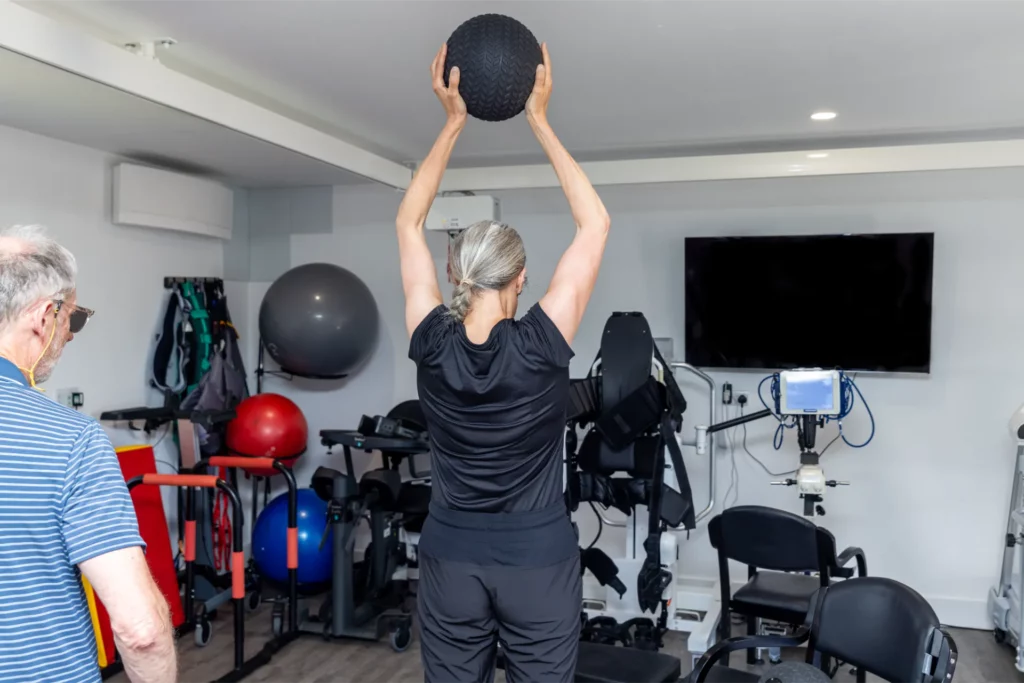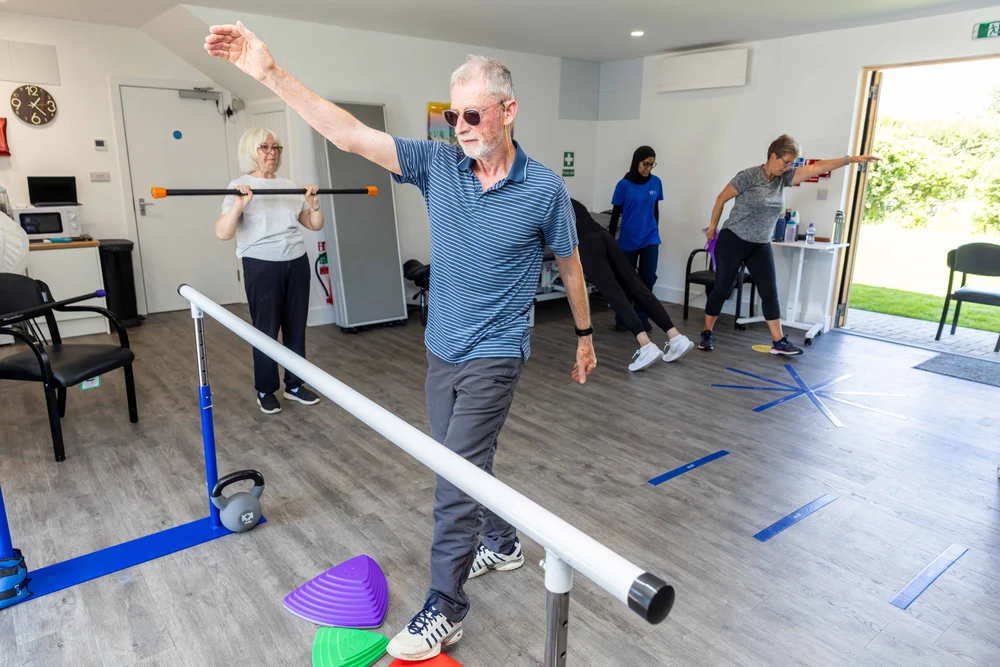
Falls and Balance
Balance is the ability to maintain the body’s centre of mass over its base of support. It is a complex process involving the integration of sensory input from visual, vestibular and proprioceptive systems, coordinated by the brain, and executed by the musculoskeletal system.
Good balance is crucial for everyday activities, from simple tasks like standing and walking to more dynamic activities like running and jumping.
Factors affecting balance:
- Age: as people age, the systems responsible for balance may be affected. This can lead to reduced awareness of body position, slower reaction times and weaker muscles.
- Medical conditions: conditions such as arthritis, Parkinson’s disease, diabetes, and cardiovascular diseases can impair balance.
- Medications: some medications have side effects that can affect balance, such as dizziness or drowsiness.
- Vision impairments: vision plays a crucial role in maintaining balance, and impairments can significantly affect it.
- Vestibular disorders: disorders in inner ear, such as vertigo, can disrupt balance.

Falls can result in injuries, reduced mobility and loss of independence.
Physiotherapy, along with specialized balance and falls support, can aid individuals in enhancing their balance, implementing preventive measures, and significantly reducing the risk of falls, thereby improving their quality of life and independence.
Other that could add:
- Guillen Barre Syndrome
- Charcot Marie Tooth
- Huntingdons Disease
- Muscular Dystrophy